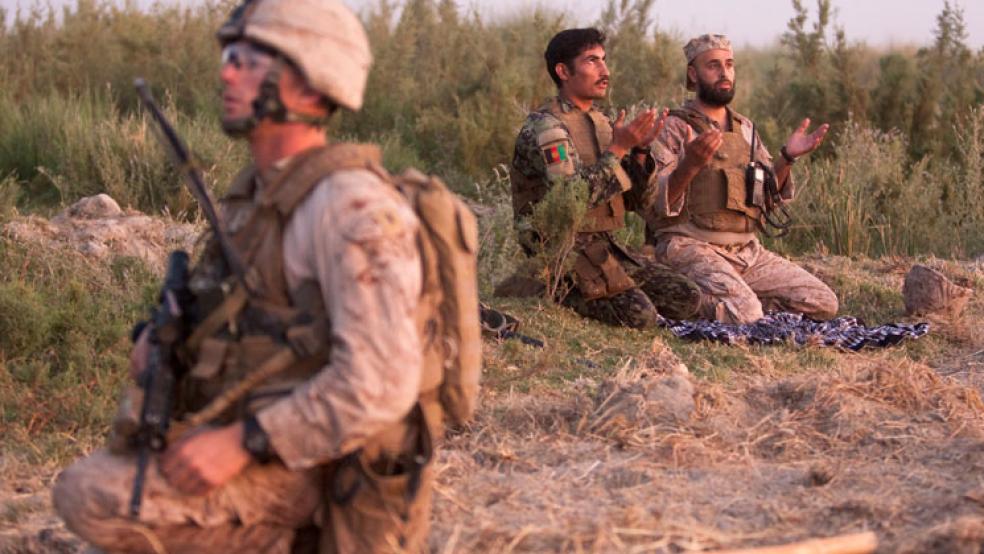The United States and Afghanistan have been growing apart for months. Afghan President Hamid Karzai embarrassed the United States this summer when he pulled out of peace talks without notifying Washington. President Obama responded by threatening to pull out of the country completely next summer.
Related: Pentagon’s $1.5 Trillion Jet Punches Back
All of this makes a draft security agreement between both sides all the more surprising. The deal, dated July 25, 2013, outlines an open-ended commitment to Afghan security and stability in the form of American lives and treasure. Dollar amounts were not specified. But the document makes clear that the United States would be footing the bill for Afghan institutions for the foreseeable future.
Under the terms of the draft agreement, the Afghan government would “eventually” pay to maintain it’s own national security apparatus. But the agreement contains no deadline for this to occur.
Until then, "the United States shall have an obligation to seek funds on a yearly basis to support the training, equipping, advising and sustaining of the Afghan National Security Forces (ANSF), so that Afghanistan can independently secure and defend itself against internal and external threats, and help ensure that terrorists never again encroach on Afghan soil and threaten Afghanistan, the region, and the world." The agreement also mandates that the notoriously corrupt Afghan government manage the money.
The White House refused to comment on the draft. A National Security Council spokesperson told NBC News, "The President is still reviewing options from his national security team and has not made a decision about a possible U.S. presence after 2014."
If the final agreement resembles that draft, the United States would be agreeing to a deal that favors Karzai, despite his open hostility to the United States in the last year. He embarrassed Defense Secretary Chuck Hagel on Hagel’s first visit there, saying that the United States was colluding with the Taliban. He has accused American soldiers of war crimes and attempted to stop Special Operation in a restive province.
Related: Obama’s Zero Option Saves $111 Billion in Afghanistan
Under the terms of this deal, Karzai gets to have his cake and eat it too. The deal commits the United States and its military personnel to Afghanistan for the long haul; Karzai knows that without the United States, he would likely lose power and the country could fall apart.
At the same time, the deal strips the United States of much of its authority, making the U.S. military an unpaid mercenary army. The United States would foot the bill for the entire operation.
For instance, DOD officials have said previously that ten to 15 thousand troops would remain. These troops would not have the authority to make arrests and would have to work out of Afghan bases: The deal does not permit permanent U.S. bases there.
And while the amount of money the United States would spend isn’t specified, it would be in the tens of billions at least. Washington has already committed to spending $34 billion there next year. Previous estimates by The Fiscal Times show that the United States could save $111 billion by pulling out of the country completely.
Related: GAO--As Withdrawal Looms U.S. Risks All Afghan War Gains
Soon after the draft report was released, news of another concession to Karzai emerged. Secretary of State John Kerry reportedly told Karzai that Obama would sign a letter of apology for civilian casualties and raids on incorrect topics. The letter, according to Reuters, would be presented by Karzai to a group of 3,000 tribal elders who have to approve it before Afghan parliament would consider it.
White House spokesperson Jay Carney refused to comment on the report, but said that Karzai and Obama were communicating.
“We take every precaution to prevent civilian casualties and we always express regret when civilians are killed,” he said.
Carney also refused to comment on reports that the draft was the final agreement.
“There are ongoing conversations,” he said.
Top reads from The Fiscal Times:





